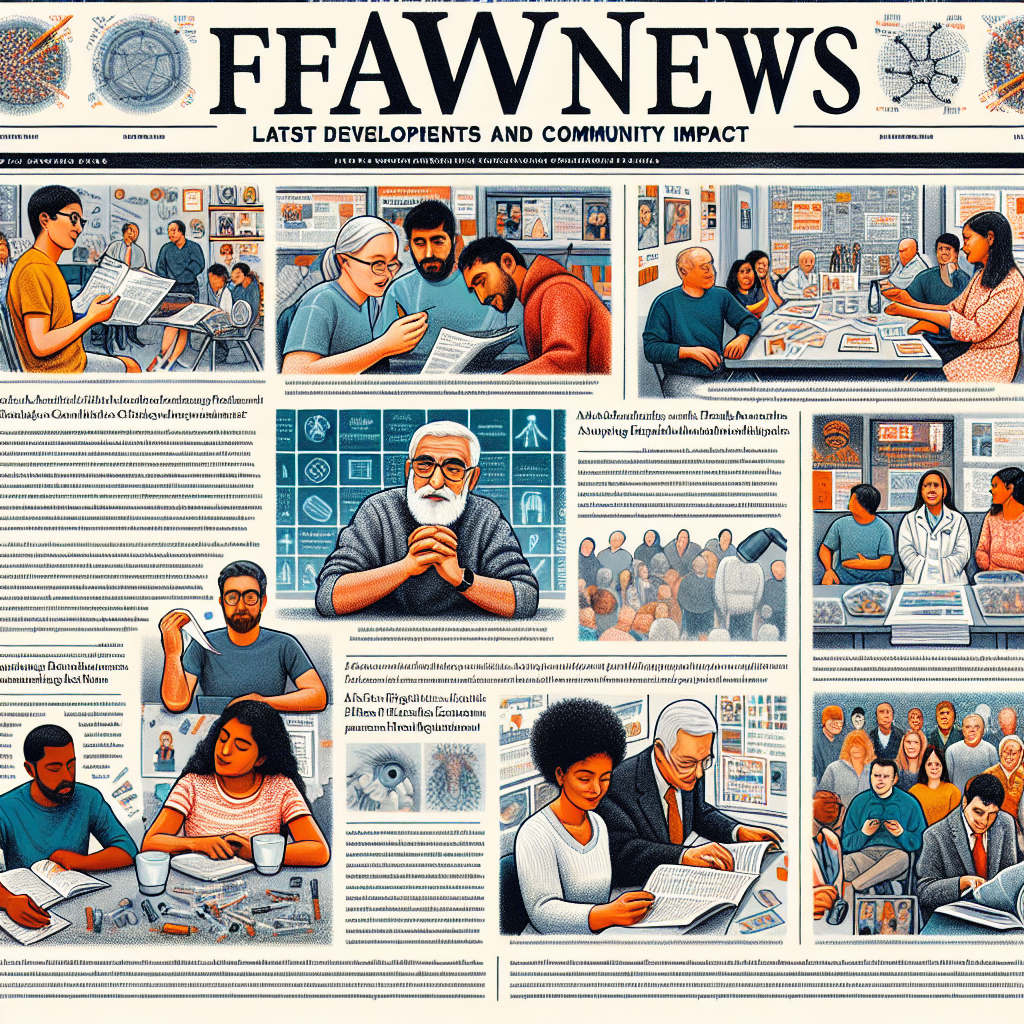Ad Details
-
Ad ID: 712
-
Added: November 24, 2024
-
Views: 49
Description
===
In the ever-evolving landscape of fisheries, the FFAW (Fish, Food, and Allied Workers) is at the forefront, continuously shaping the future of local communities dependent on these vital resources. Latest developments in FFAW news highlight the urgent need for sustainable practices that not only support fisheries but also uplift the communities that rely on them. As local fishermen face unprecedented challenges, understanding these updates is crucial for anyone invested in the fishing industry or the wellbeing of these coastal towns.
FFAW News: Key Updates on Fisheries and Community Welfare
The FFAW has been actively engaged in discussions regarding the sustainability of fish stocks in the Northwest Atlantic, particularly focusing on the impacts of climate change on local species. Recent studies indicate a shift in fish migration patterns, leading to concerns about overfishing and the depletion of key species. The union has responded by pushing for stricter regulations and innovative fishing methods to ensure the long-term viability of these resources. This proactive stance aims to safeguard not only the industry but also the livelihoods of many families who depend on fishing as a primary source of income.
In addition to ecological challenges, FFAW news has also spotlighted the pressing need for community welfare programs. The union has recognized that while fisheries are critical, the associated communities require comprehensive support systems to thrive. Initiatives such as enhanced training programs for fishermen and financial assistance for struggling families have been introduced. These programs are designed to build resilience among local communities, ensuring they are equipped to face the ongoing challenges of the fishing industry.
Moreover, the FFAW is advocating for more inclusive policies that elevate underrepresented voices in the fisheries sector. By promoting diversity and creating pathways for marginalized groups to enter the industry, the union is working towards a more equitable fishing community. This shift is crucial not only for the social dynamics within these towns but also for fostering a sustainable and innovative fisheries sector. The combination of environmental awareness, community support, and inclusivity represents a holistic approach to overcoming the challenges faced by local fisheries.
Recent Developments and Their Impact on Local Fisheries
Recent developments in FFAW news reveal significant transformations within the fisheries sector, particularly regarding technology adoption and regulatory changes. The introduction of advanced tracking systems has enabled fishermen to monitor fish stocks more accurately, leading to better management practices. These technologies facilitate real-time data sharing among fishermen, which promotes responsible fishing and helps to prevent over-exploitation of resources. As a result, local fisheries are beginning to see a revival in fish populations, offering hope for a more sustainable future.
Moreover, regulatory changes championed by the FFAW are aimed at enhancing the economic resilience of local fisheries. New policies that focus on sustainable fishing quotas and eco-certification have created new market opportunities for fishers. These changes not only help in the recovery of fish stocks but also allow fishermen to command higher prices for sustainably caught seafood. Local consumers are increasingly looking for responsible sourcing, and fishermen who participate in eco-friendly practices are finding themselves in a favorable position in the marketplace.
The collective impact of these developments extends far beyond the fishing boats and processors; they resonate throughout local economies. As fishing practices improve and fish populations stabilize, communities are witnessing a revitalization of associated businesses, from processing plants to restaurants. This ripple effect is vital for economic growth, allowing communities to invest in infrastructure and social programs that further enhance welfare. As local fisheries adapt to these changes, the potential for long-lasting benefits becomes increasingly evident, reinforcing the importance of the FFAW’s ongoing advocacy and support.
===
In conclusion, the latest FFAW news paints a picture of a fishing industry in transition, one that is adapting to environmental challenges while prioritizing community welfare. As local fishermen navigate these changes, the support and initiatives from the FFAW will play a pivotal role in shaping a sustainable future. The community stands at a crossroads—embracing new technologies, advocating for equitable policies, and fostering a resilient economy. To stay informed and engaged with these vital developments, consider following FFAW updates and participating in community discussions. Together, we can ensure a prosperous future for fisheries and the communities that rely on them.
Alex Formenton: Latest Updates on His NHL JourneyUncovering the Truth: Inside the World of Dirty NewsAishwarya Rai: Latest Updates on Her Career and ProjectsRelevant LinkRelevant LinkRelevant Link






